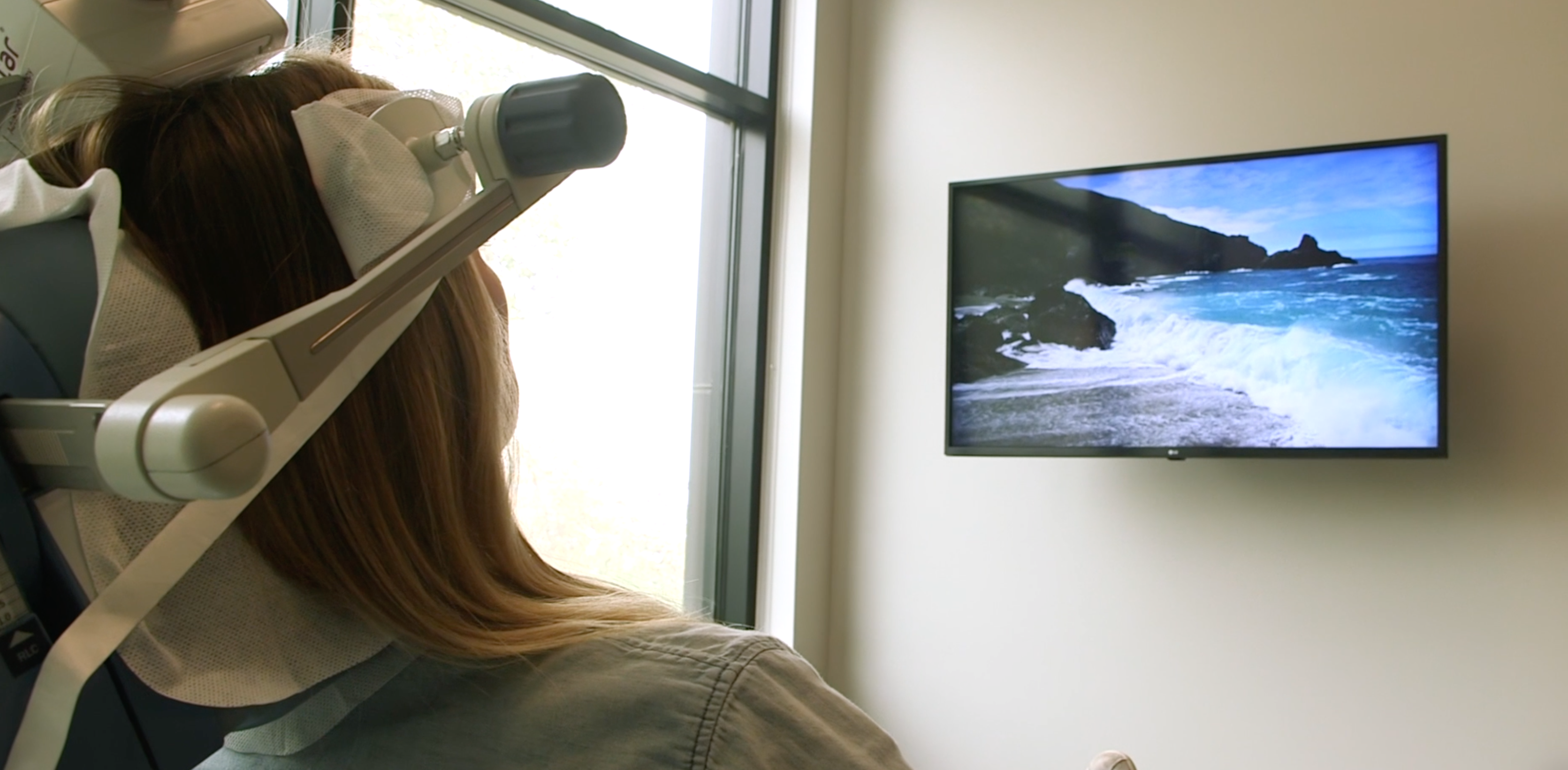The world of health care is full of technology that can be a bit intimidating for many people. Yet this same technology can have positive impacts for people living with depression.
When it comes to treating your depression, or major depressive disorder, there are many technology-based treatment options that your mental health provider may recommend, like transcranial magnetic stimulation (TMS). Learning some basics about this treatment and the technology used to provide it can help it seem less intimidating and help you focus on improving your mental health.
Read on to learn about the basics of TMS therapy, how the TMS machine works and how it can help your depression.
The basics of TMS
TMS, or transcranial magnetic stimulation, is a neurostimulation therapy that’s used to treat treatment-resistant depression, anxious depression and treatment-resistant OCD. It uses pulses of magnetic energy that are emitted into the brain to stimulate nerve activity in specific areas that affect your mood regulation.
TMS has roots that trace all the way back to 1985 when the first TMS device was invented as a research tool by Dr. Anthony Barker, but it didn’t become a mental health treatment modality until the 21st century. The FDA cleared it as a depression treatment in 2008, and later on approved it in 2018 as an OCD treatment. Anxious depression was cleared in 2021.
How the TMS machine works
The TMS machine utilizes magnetic coil technology through a device that goes on top of your head. The coil is placed on your scalp near your forehead by a specially trained technician under the supervision of a mental health provider. The electric current from the coil generates an electromagnetic field to stimulate the targeted areas. The device is specifically fitted to your exact measurements that are taken during your “mapping session,” which is your initial TMS session.
The machine will work differently for each kind of TMS method. The two most common TMS therapy methods are deep TMS (dTMS) and repetitive TMS (rTMS). Deep TMS emits pulses of the same continuous strength about 4 centimeters deep into the forehead with an H1-coil. Repetitive TMS pulses gradually increase in strength as they penetrate about 1.5 centimeters deep with a figure-8 coil.
Patients report that the sensation of the pulses from the TMS machine feel like someone is tapping on the side of their head.
At Active Path Mental Health, we use machines from NeuroStar TMS Therapy as well as Brainsway.
How the TMS machine helps your depression
The goal of TMS is to decrease your depression symptoms by transforming the neural networks to stimulate underactive areas of the brain that contribute to mood regulation.
Deep TMS targets the subgenual anterior cingulate cortex, which is where your reward and motivation pathways are located. This area can contribute to the lack of motivation and enjoyment in activities that are common in individuals diagnosed with major depressive disorder.
Repetitive TMS is used to stimulate the dorsolateral prefrontal cortex, which manages cognitive and executive functions that are believed to be impacted by depression. These functions include:
- Working memory.
- Attention control.
- Negative affectivity.
- Intention formation.
- Goal-directed action.
- Abstract reasoning.
At Active Path Mental Health, we use both devices that can deliver deep TMS and repetitive TMS with similar efficacy.
Results from past patients prove how effective the machine is as a depression treatment option, with many noticing an improvement by the fourth week of sessions. Approximately 79% of patients experience a greater than 25% decrease in their depressive symptoms. Many even had their symptoms cut in half, with 56% of patients having a 50% decrease.
Most people seek TMS therapy in hopes of having their depression symptoms completely eliminated, and that has been the case for a large number of our patients. In fact, 33% of patients no longer experience depression symptoms.
Active Path Mental Health can use TMS machines to help your depression
Technology is always advancing. In the world of mental health care, devices like TMS machines allow us to provide effective and safe treatment options for people who have depression symptoms that interfere with their quality of life.
Now that we’ve broken down the history and mechanics of the TMS machine, you can discuss TMS therapy with your mental health provider to see if it’s right for you.
If you want to experience the effects of our machines for yourself, contact our team today for more information or to schedule an initial appointment.




